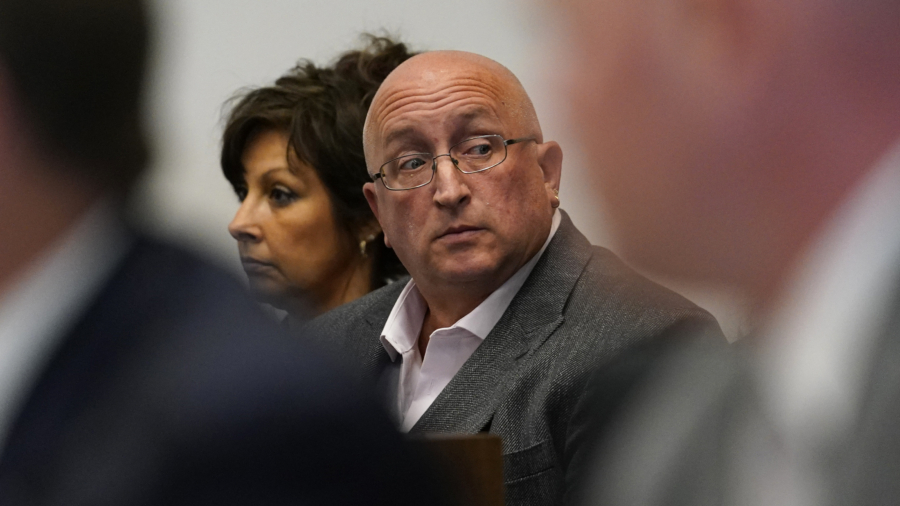On Wednesday, an Illinois grand jury formally indicted Robert Crimo Jr., the father of Highland Park mass shooting suspect Robert Crimo III.
Crimo III is accused of opening fire at an Independence Day parade in Highland Park, a Chicago suburb. Seven people were killed in the shooting and 48 others were injured. Crimo III faces 117 charges.
Crimo Jr. was arrested in December on seven felony counts for reckless conduct relating to his 2019 decision to sponsor his son’s gun license application, despite his son’s history of violent threats and suicidal ideations dating back to 2016. Crimo Jr. faced one felony count for each of the seven individuals killed in the July 4 shooting.
Crimo Jr. was released after his arrest on a $50,000 bond. At a brief hearing last month, prosecutors had told Judge George Strickland at a Lake County Courthouse in Waukegan, north of Highland Park, that they needed more time to present evidence to the grand jury in their case against Crimo Jr.
Lake County State’s Attorney Eric Rinehart announced on Wednesday that a grand jury had agreed that the charges against Crimo Jr. could move forward.
“Parents who help their kids get weapons of war are morally and legally responsible when those kids hurt others with those weapons,” Rinehart said.
Crimo III had reportedly attempted suicide by machete in April 2019, and in September 2019 was accused by a family member of making threats to “kill everyone.” Despite these alleged incidents, Crimo Jr. sponsored his son’s December 2019 firearms license application. Two and a half years later, his son would face charges of using an AR-15-style rifle to fire more than 80 rounds from a building top into the crowd of parade participants below.
“Parents and guardians are in the best position to decide whether their teenagers should have a weapon,” Rinehart said following Crimo Jr.’s arrest last year. “In this case, the system failed when Robert Crimo Jr. sponsored his son. He knew what he knew and he signed the form anyway.”
Rinehart said each count of reckless conduct carries a maximum prison term of three years. With seven charges, Crimo Jr. could face up to 21 years in prison, though Rinehart said reckless conduct counts are typically served concurrently.
Crimo Jr.’s Defense
Police records showed that in September 2019, police received a report from a family member that Crimo III had a collection of knives and had threatened to “kill everyone.” Both Crimo III and his mother disputed those allegations at the time. Police have said the father, Crimo Jr., told investigators the multiple knives belonged to him, and authorities returned them.
Illinois State Police addressed the September 2019 incident in a statement the day after the shooting. The state police said, “There were no arrests made in the September 2019 incident and no one, including family, was willing to move forward on a complaint nor did they subsequently provide information on threats or mental health that would have allowed law enforcement to take additional action.” Police also said no firearms restraining order or other protective order was filed after the incident.
NTD reached out to Crimo Jr.’s attorney, George M. Gomez. Gomez confirmed that his client had been arraigned on Thursday but declined to provide further comment on the case.
After Crimo Jr.’s initial arrest, Gomez said the charges are “baseless and unprecedented.”
“This decision should alarm every single parent in the United States of America who according to the Lake County State’s Attorney knows exactly what is going on with their 19-year-old adult children and can be held criminally liable for actions taken nearly three years later,” Gomez said at the time. “These charges are absurd and we will fight them every step of the way.”
Gomez said his client “continues to sympathize and feel terrible for the individuals and families who were injured and lost loved ones,” but said the charges are “politically motivated and a distraction.”
Crimo Jr. has reportedly said he hopes his son receives a long prison sentence for his alleged actions.
Crimo III faces life in prison. The state of Illinois did away with the death penalty in 2011.
The Associated Press contributed to this article.

